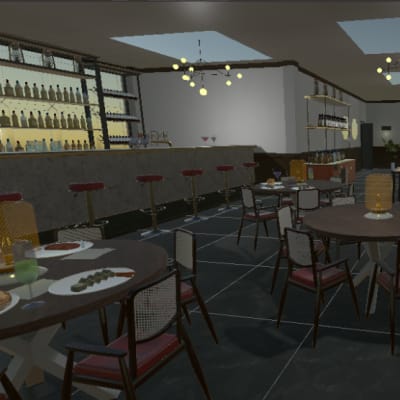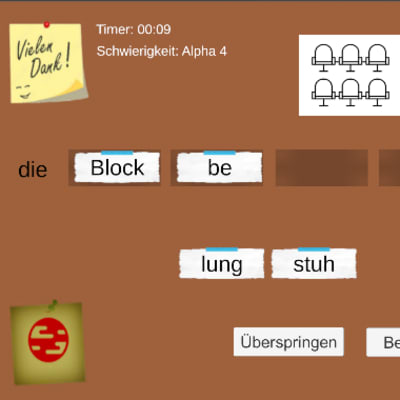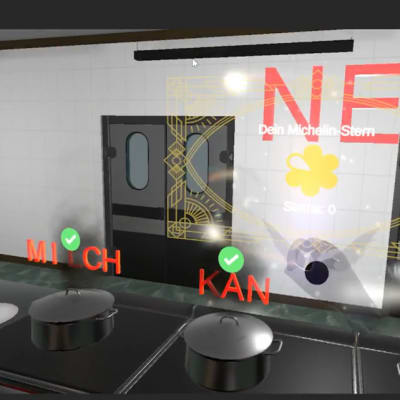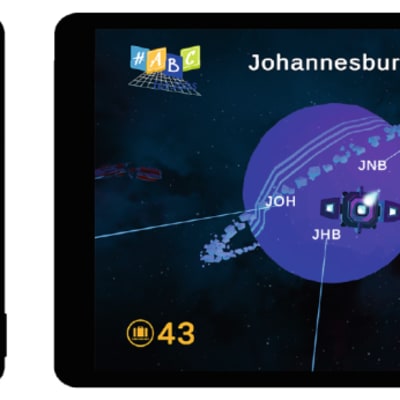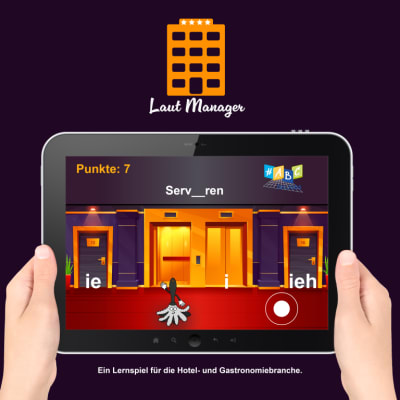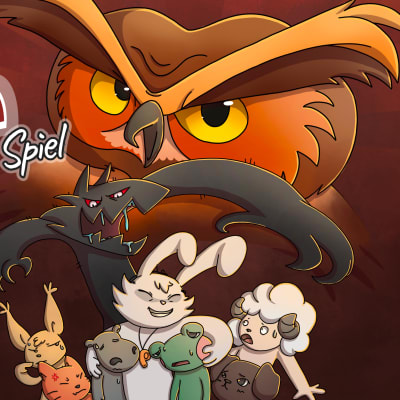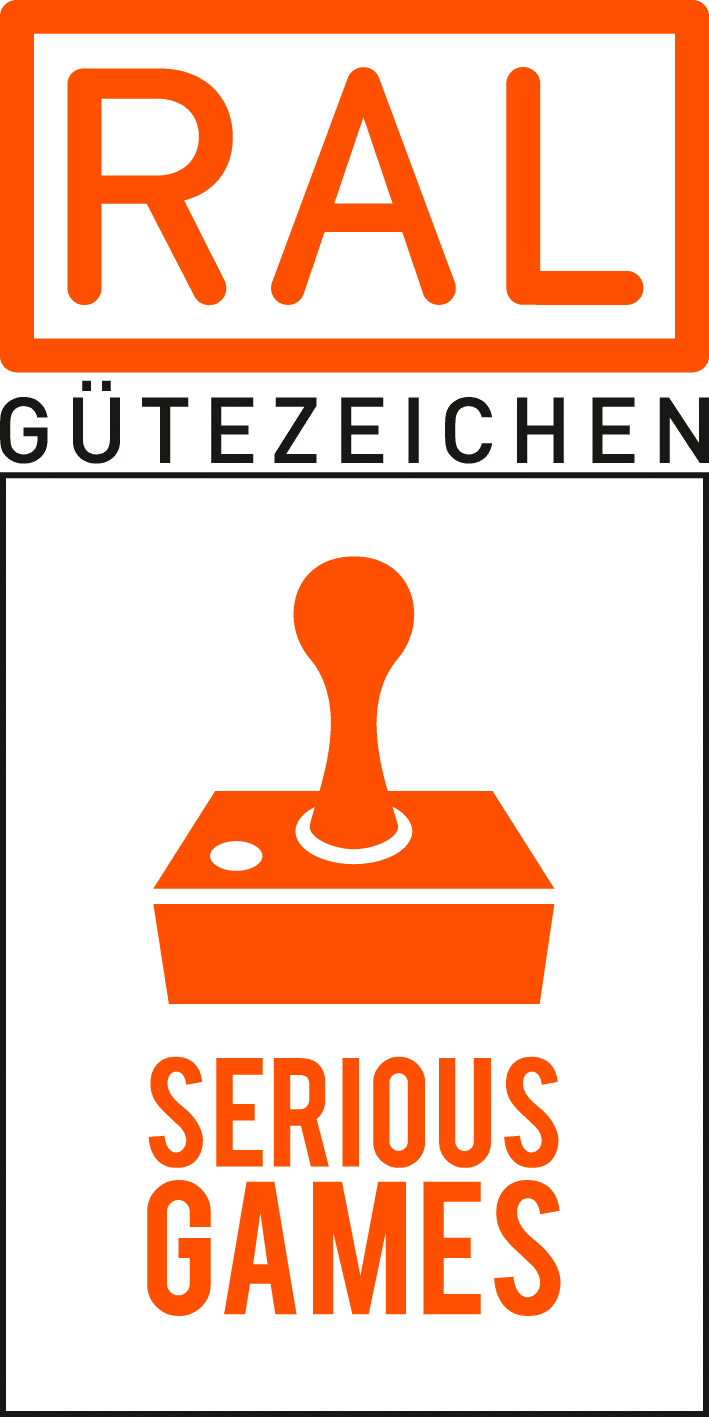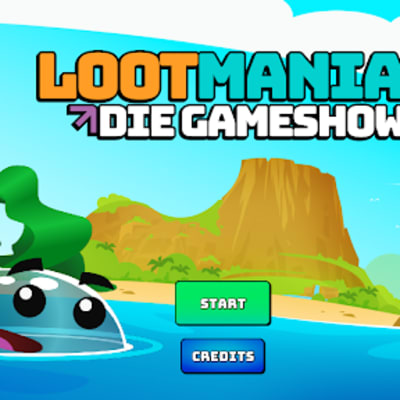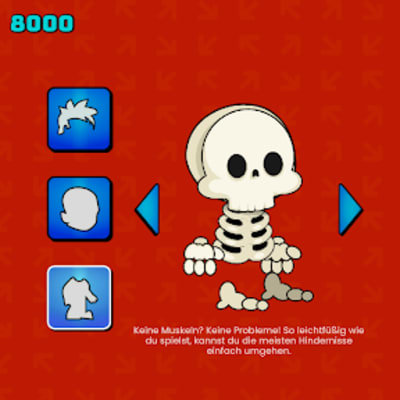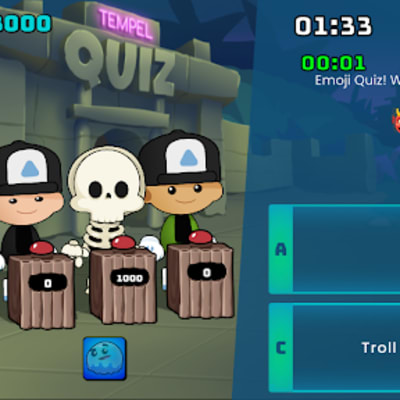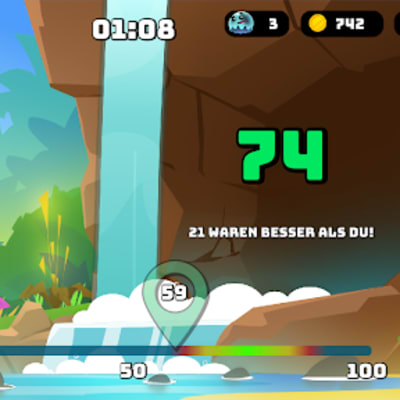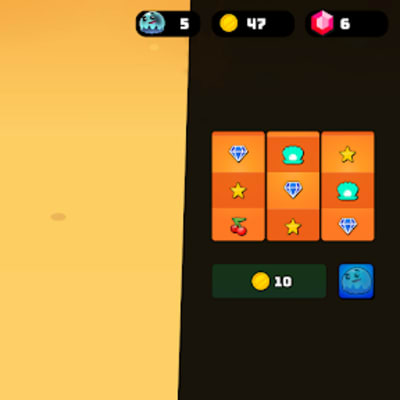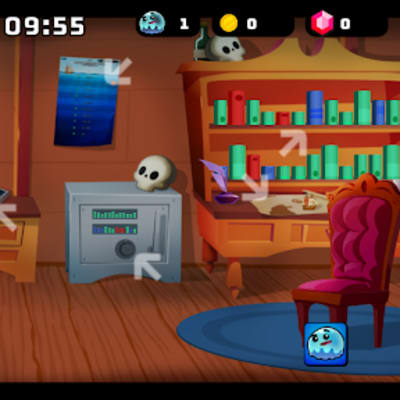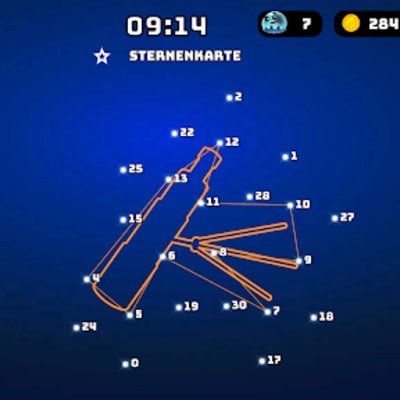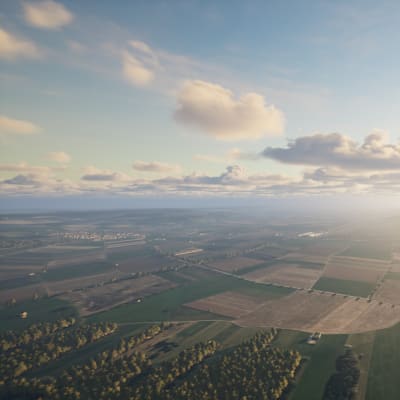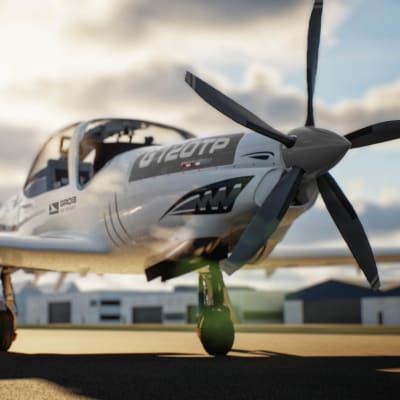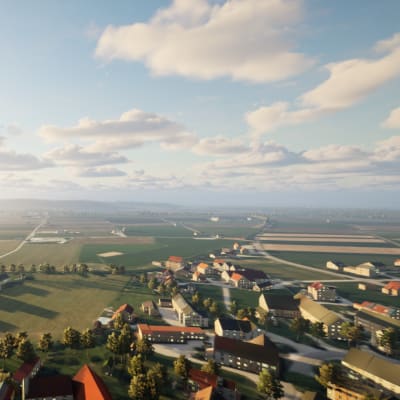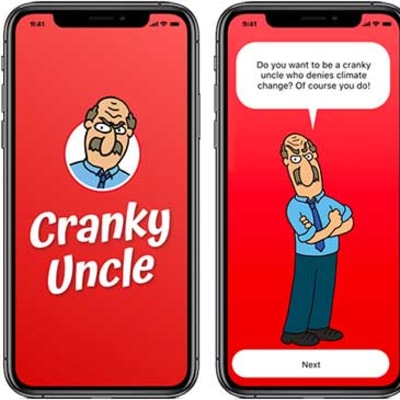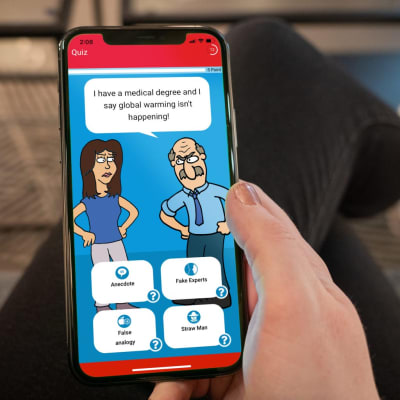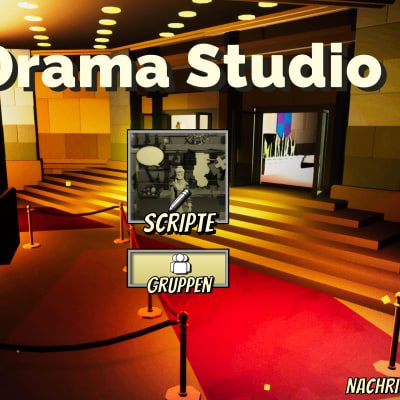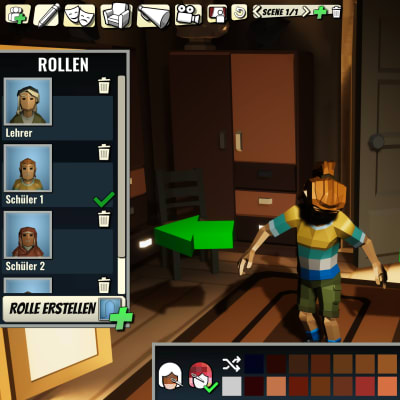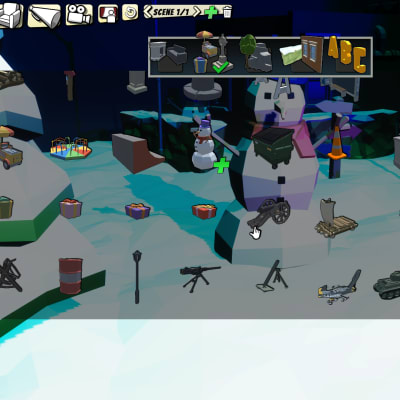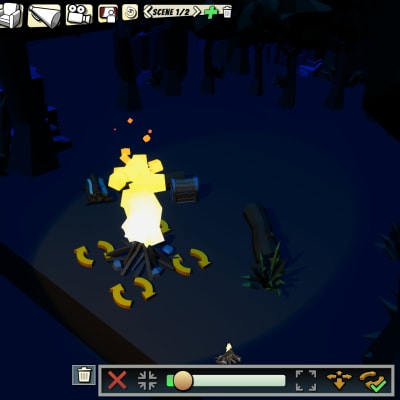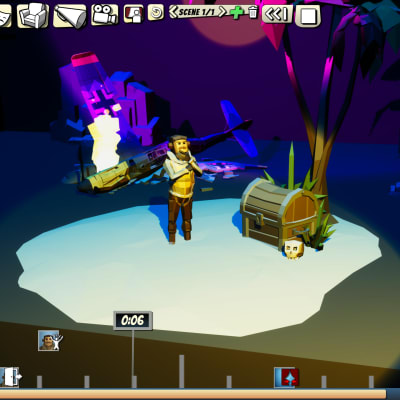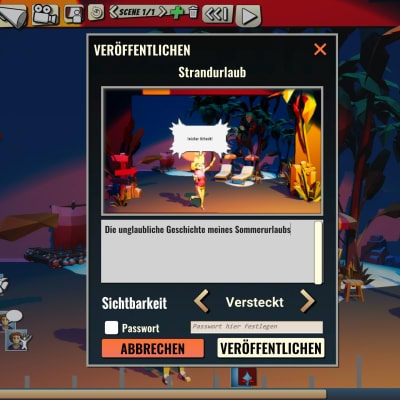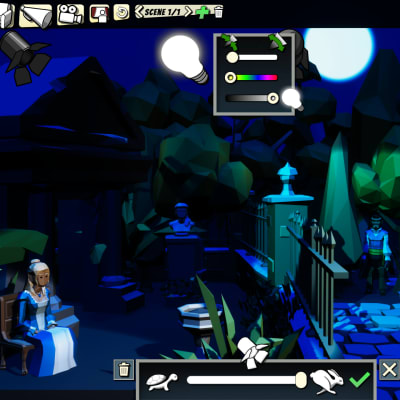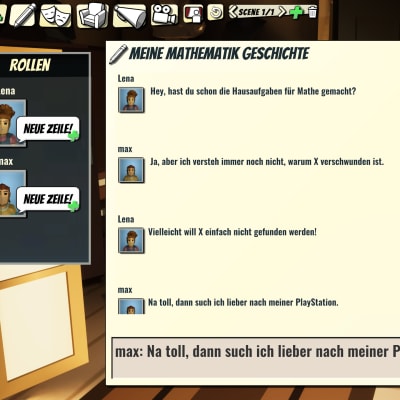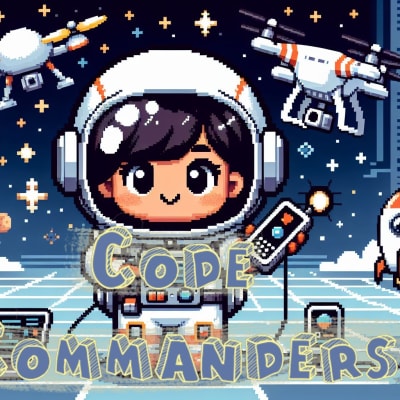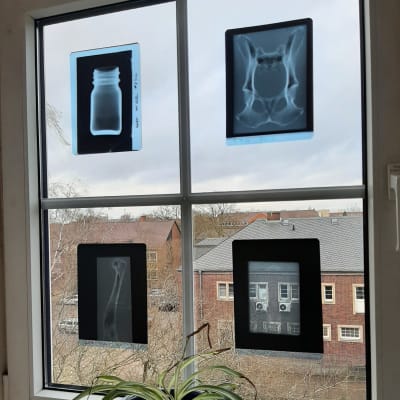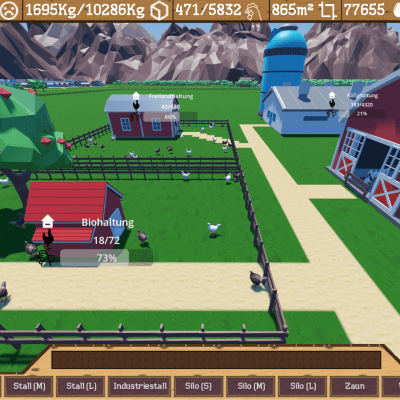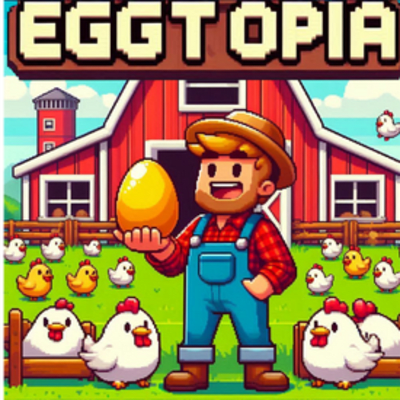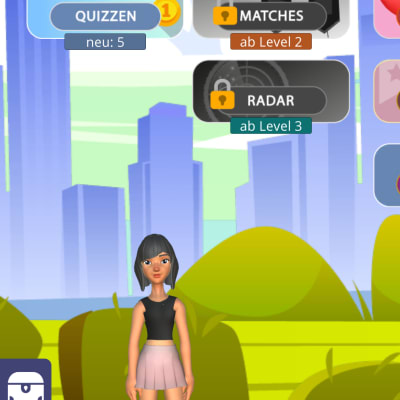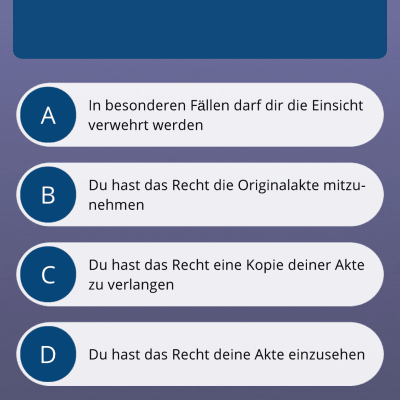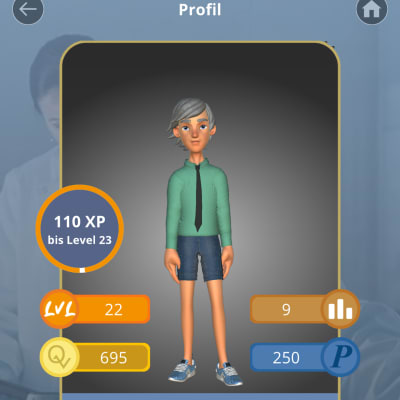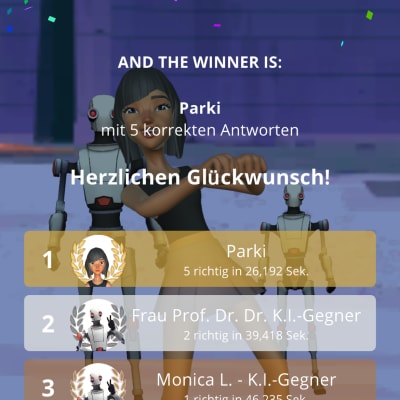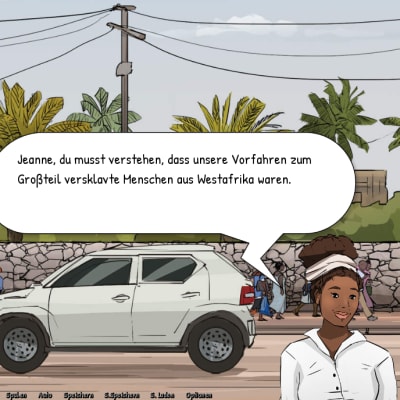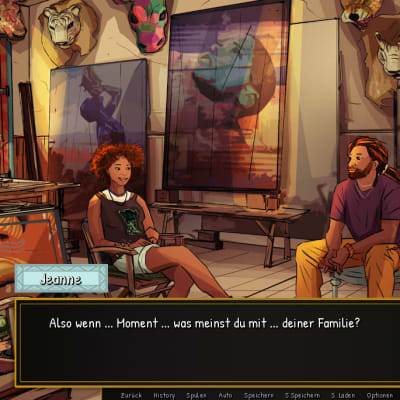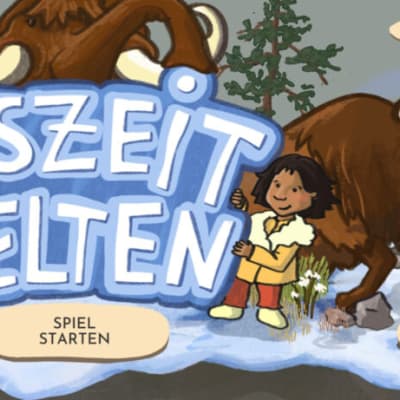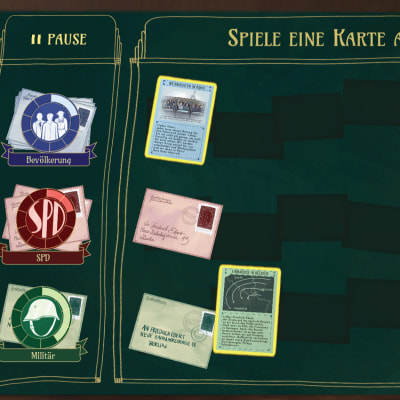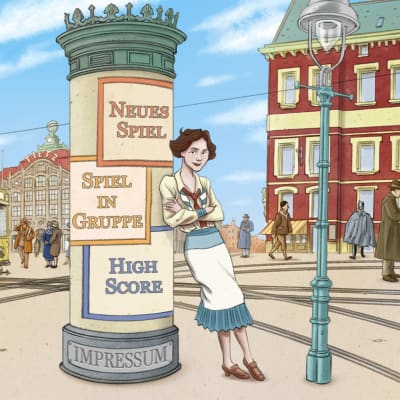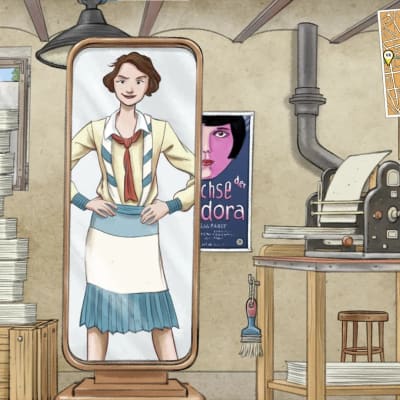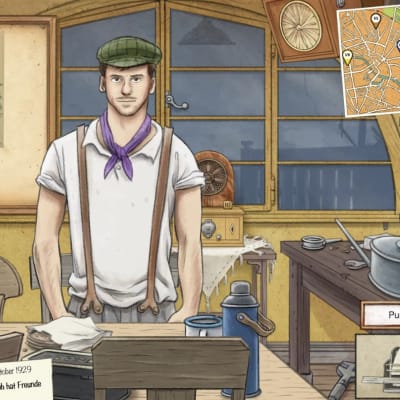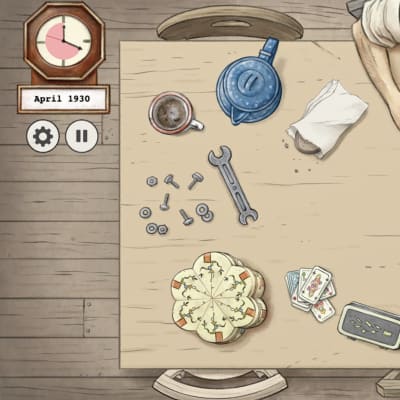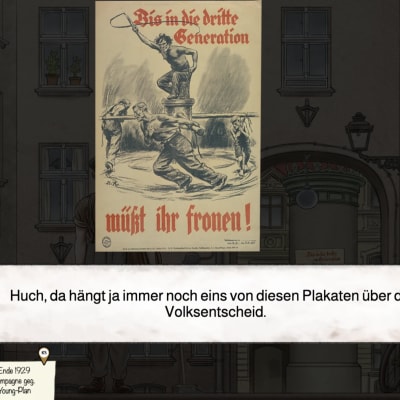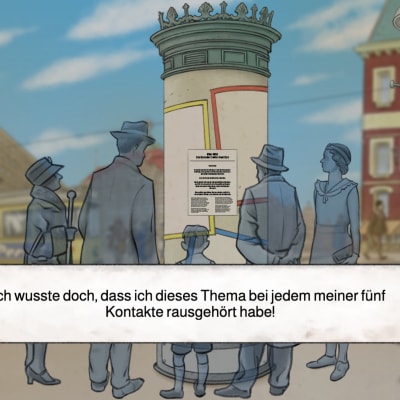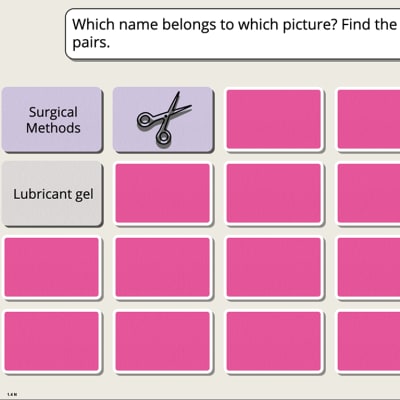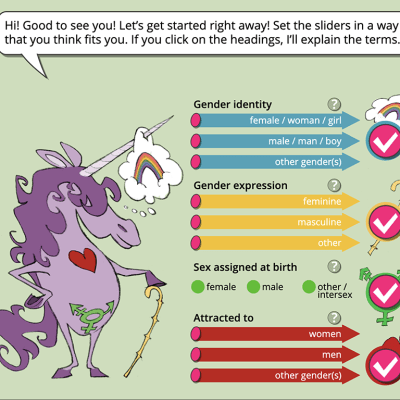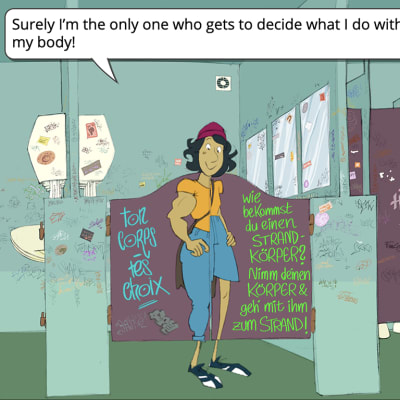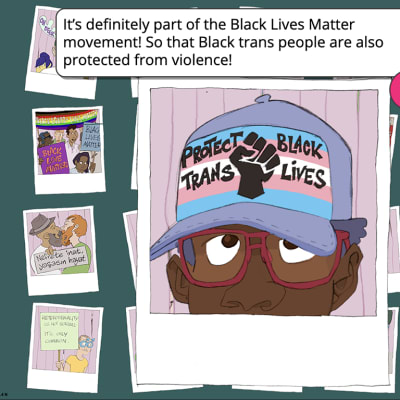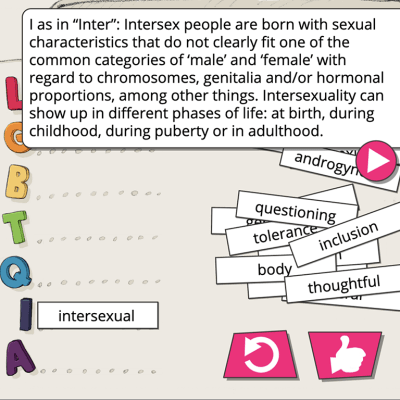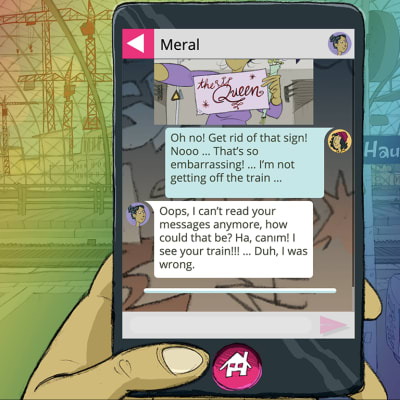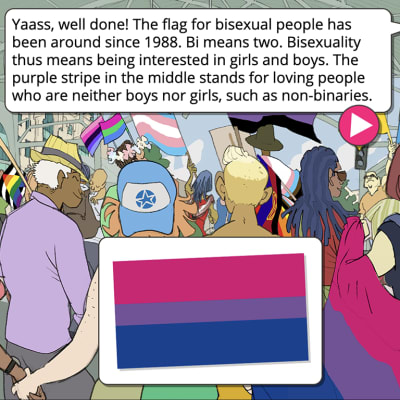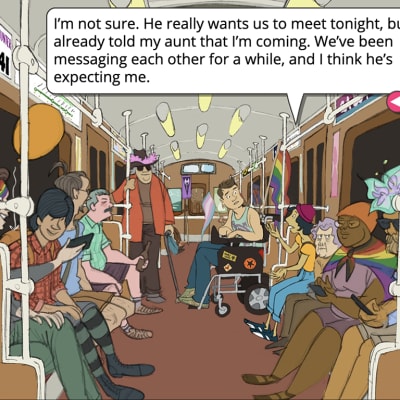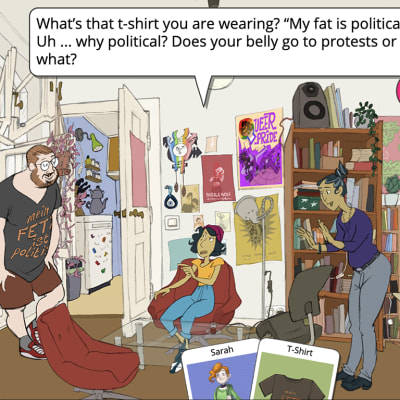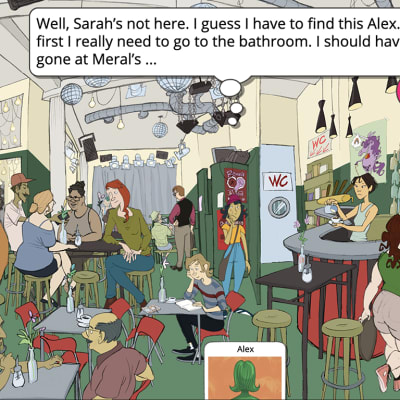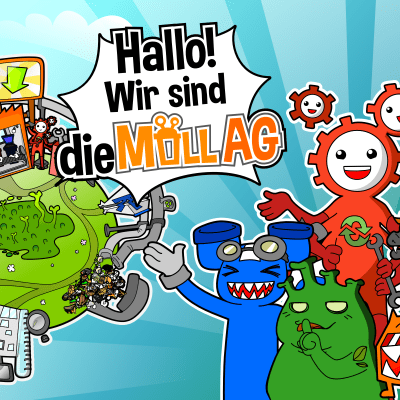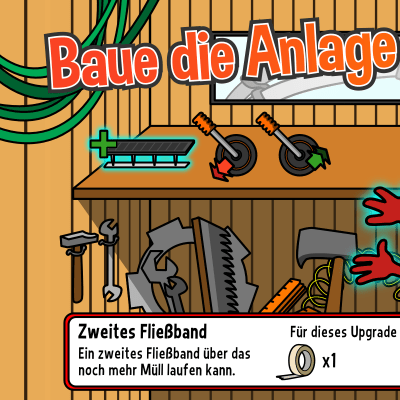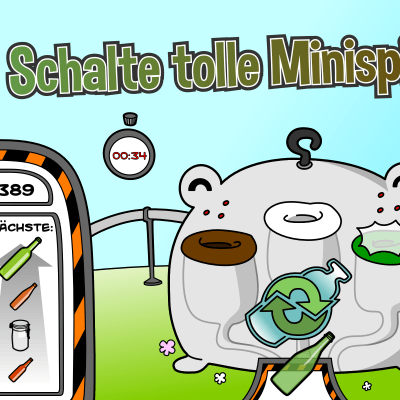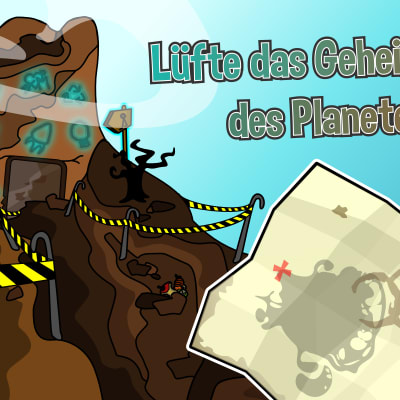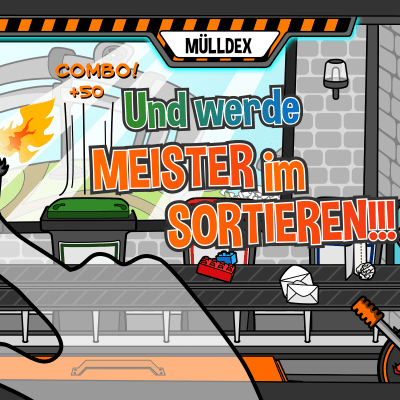Serious Games
Escape the Plate
Escape the Plate is an educational game in which players solve puzzles inside a digital escape room. The goal is to decipher a numeric door-lock code by completing various exercises in a virtual restaurant, thereby successfully escaping the room. Players tackle tasks that build foundational literacy skills—for example, syllabification, spelling, and completing cloze (gap-fill) texts. Each solved task reveals one digit of the required code. This product was funded as part of the National Decade for Literacy and Basic Education 2016–2026 with support from the Federal Ministry for Education, Family Affairs, Senior Citizens, Women and Youth, under grant number W-1505A-AOG.
Syllable Soup
Syllable Soup is a virtual-reality serious game in which players take on the role of a sous-chef in a Michelin-star kitchen in Paris. By correctly assembling syllables, they collect Michelin stars while fending off approaching cockroaches. The game blends puzzle, dexterity, and movement mechanics; strengthens language skills, reaction speed, and concentration; and, thanks to its modular design, offers flexible options for expansion. This product was funded as part of the National Decade for Literacy and Basic Education 2016–2026 with support from the Federal Ministry for Education, Family Affairs, Senior Citizens, Women and Youth, under grant number W-1505A-AOG.
Sky Dash
“Sky Dash” is a serious (digital) game for mobile devices. The learning game teaches the acquisition of three-letter codes (IATA codes). Its target group is adults with limited literacy skills who are enrolled in a vocational or continuing training program in ground logistics at an international airport. For each question, players must choose the correct answer from three IATA codes. This is not done by simply clicking; instead, players must skillfully pilot their own aircraft and navigate to the correct three-letter code. This product was funded as part of the National Decade for Literacy and Basic Education 2016–2026 with support from the Federal Ministry for Education, Family Affairs, Senior Citizens, Women and Youth, under grant number W-1505A-AOG.
Loud Manager
"Loud Manager" is a serious (digital) game for PCs and mobile devices. The learning game is designed to improve and consolidate orthographic knowledge. In addition, it fosters players’ phonological awareness, reading fluency, and retention in connection with domain-specific vocabulary. The target group is low-literate adults working in the hotel and hospitality sector. Laut-Manager uses a points-based game mechanic. The game belongs to the “sidescroller” genre, a subgenre of jump ’n’ run platformers and racing/runner games, characterized by the avatar automatically moving along a course without stopping while the player must avoid obstacles and, where appropriate, collect items. The underlying objectives of the game are: Avoiding “enemy” objects. Choosing the correct sound for the missing part of a target word (for example: ss for the word Me__er [Messer]). Players control the character “Staubi” through a seemingly endless hotel corridor. From time to time, the game pauses at room and elevator doors, from which the sounds to choose from appear for the target word. The correct sound must then be selected by clicking. If the correct sound is chosen, players receive a point and another cloze word appears. As soon as a wrong selection is made, the game provides feedback by showing what the correct answer would have been, highlighting it in green. The product was funded as part of the National Decade for Literacy and Basic Education 2016–2026 with funds from the Federal Ministry for Education, Family Affairs, Senior Citizens, Women and Youth under the funding code W-1505A-AOG.
Uuugh – False Play
“Uuugh – Falsches Spiel” is a serious game that helps you understand perpetrator strategies in the context of (sexualized) violence in a playful way and see through them in real life. Would you recognize if someone was manipulating you? Especially with the aim of committing (sexual) violence? In Uuugh – Falsches Spiel, you become the main character – but in a completely different way than you might be used to: you take on the role of the perpetrator. What may sound unusual at first glance has an important reason: you learn how perpetrators act in the context of (sexualized) violence, how they manipulate, isolate, and make people dependent—and that's exactly what helps you see through such strategies more quickly in real life.
LOOTMANIA
Die Gameshow
In the serious game „Lootmania“, children and young people can playfully explore the hidden dangers of dark patterns - manipulative game design elements. In our game, such mechanisms are intentionally integrated to make them tangible within a safe environment. After playing Lootmania, participants are specifically informed about how dark patterns work. The classroom context provides the educational framework: it prepares for the gaming experience and concludes with a shared reflection.
Aerion - FlightSimVR - Pilot Training
Virtual Reality, Mixed Reality and Dome Projection
The dream of flying has inspired people for hundreds of years. FlightsimVR is a multiuser flight game that enables the realistic flying of small aircraft in a team. The game elements are used specifically to ensure motivation in the acquisition of flying skills. The missions can be completed in single-player mode with classic flying and in a team with guide support in exciting environments and technical challenges. The 3D environment is based on the processing of Gis Maps data and can be accessed digitally via coordinates anywhere in the world. Game mechanics: In addition to controlling the aircraft using conventional methods such as VR/PV/console controllers, innovative hand gesture controls are also offered. Mixed reality is used to control real parts of the cockpit and reduce motion sickness in VR. Dynamic weather conditions and simulated defects on the aircraft provide realistic variety and motivate the player to solve the tasks set. In exciting multi-user missions, you can learn to fly and use the functions of the aircraft realistically. Applied technologies: Project processing and management is implemented with Scrum in Miro. The modeling of all assets for environments and aircraft data is implemented with Blender and Adobe Substance Painter. Unreal Engine 5.1 and C++ are the platform used for programming all functions. Unique selling point: The innovation lies in the control of the airplanes in virtual reality by using the XR camera image and hand gesture control in a 3D environment that works with physical lighting methods (Unreal with Lumen) and intelligent data reduction (Unreal with Nanite). The aim is to become one of the leading companies for the best graphics quality on the market and to be a pioneer in the field of education and edutainment for interactive flight training.
Cranky Uncle
Cranky Uncle is an educational digital game developed by academics and was published in 2020 by John Cook, a scientist at Monash University, in collaboration with the creative agency Goodbeast. The aim of the game is to train students in how to deal with misinformation by becoming a ‘Cranky Uncle’ themselves, a science denier and conspiracy theorist who uses various argumentation techniques to reject the general scientific consensus. Through humorous cartoons with a thematic focus on climate change, deep insights into the tactics of science denial are provided to help resist misleading persuasion attempts in the future and improve critical thinking. As they play, players are put to the test in various quiz types, need to identify deceptive arguments, receive instant feedback in response to correct or incorrect quiz answers, and move up and down a scoring system.
Drama Studio
Do you want to inspire your students to create amazing 3D animated stories? Do you want to engage them in learning through gaming, animation, and storytelling? Then you need to try Drama Studio! Drama Studio is a game-based multiplayer tool that allows your students to make their own 3D animated stories. They can choose from a variety of characters, scenes, props, and sounds to bring their imagination to life. Drama Studio is easy to use and fun to teach. Your students can record their own voice, control the movements of the characters, and edit the scenes with simple gestures. They can also collaborate with their peers in real time, and share their stories with the world. Drama Studio is not only a creative tool, but also a learning tool. You can use Drama Studio to explore different topics, themes, and genres, and develop your students' skills in storytelling, communication, collaboration, and critical thinking. You can also use Drama Studio to help your students express their emotions, opinions, and perspectives, and foster empathy and respect for others. Drama Studio is the ultimate tool for learning in the 21st century. It combines the best of gaming, animation, and storytelling, and makes learning fun and engaging. So what are you waiting for? Start your Drama Studio adventure today!
Code Commanders
Programming learning for children
Discover an intuitive programming learning game for children! Code Commanders is an educational game that teaches programming through a visual programming language like Scratch in an easy and fun way. It offers both single and multiplayer modes where players can solve puzzles by hacking and reprogramming a drone. The game dynamically adapts to players' level of knowledge by using knowledge space theory to create a personalised learning experience. Developed from a series of student projects, ‘Code Commanders’ is not just a game, but an exciting educational journey that inspires young minds to explore the world of technology and develop their own creative solutions. Download ‘Code Commanders’ now and embark on an adventure into the world of programming!
Educational Escape Room Physics
The Escape Room Physics is an educational escape room for the minor subject training of veterinary medicine students and covers the main thematic areas of physics (mechanics, thermodynamics, electricity, classical optics, atomic physics, magnetism, X-rays). The 10 physics puzzles are worked through sequentially in groups of 3 (boxes with code), whereby the concept is easily transferable to other subject groups with a moderate depth of knowledge in physics. 16 side puzzles were introduced, so-called Eurogame Puzzles - based on the principle of European Boardgames: The students receive victory points for solving the side puzzles and can thus compare themselves with other groups. The Eurogame Puzzles (tactical secundary puzzles) are optional and serve as motivation/gamification. They are not graded and the time required to complete the escape room is 2.5 hours. For details: https://www.tiho-hannover.de/kliniken-institute/fachgebiete-und-forschungszentren/fachgebiet-allgemeine-radiologie-und-medizinische-physik/lehre/physik-escape-room
Eggtopia
The Animal Welfare Game
Eggtopia places you in the role of a chicken farmer, where acquiring knowledge is crucial for navigating the challenges posed by politics and society.
VitaQuiz
Learning health literacy in a playful way
Take a health quiz and measure your knowledge! VitaQuiz currently offers you more than 1,500 health-related questions (health, nutrition, patient rights, medication, emergencies, prevention, basic knowledge) and is updated daily. You can measure your knowledge against others in matches, use the radar to visit health-related facilities (doctors, pharmacies, clinics) in the real world and play extra questions and use the scanner to obtain additional knowledge about each medication or scan new knowledge modules. And with the VitaQuiz currency Quizzel, which you earn, you can upgrade your 3D avatar in the shop or get jokers and new quiz packs (including non-medical ones!). VitaQuiz can be played in between (e.g. during waiting times) and noticeably and measurably improves your health knowledge. And the longer you use it, the more competent you become.
Jeannes Reise
A serious game about Haiti
Accompany Jeanne on her journey to Haiti! Thematically, the video game deals with (post-)colonial structures and the associated emergence of the Restavèk system in Haiti. The free-to-play graphic novel game aims to promote non-European perspectives, critically scrutinise the European perspective and highlight the connections between global power structures and persistent grievances. The accompanying skills pack for teachers is also available free of charge and includes classification in the framework curriculum, ideas for integration into lessons, introduction and debriefing.
Eiszeitwelten
Together with the Neanderthal Museum, the Prehistoric Museum Blaubeuren and the Vogelherd site, we developed a comprehensive prototype about life in the Ice Age. The aim was to sharpen the basic picture of the Ice Age, especially in the immediate vicinity of the sites of the participating museums. What did Europe look like 40,000 years ago? What did flora and fauna look like then compared to today? What kind of people were there, and how did they interact? The idea was not to copy an existing analog experience, as is the case in a virtual exhibition, for example. The idea was to create something completely new. The mobile game Eiszeitwelten (Ice Age Worlds) extends the physical museum space and offers a first, simple access to the topic "Life in the Ice Age". The digital journey of discovery is aimed at a young audience and can be played independently of the museum visit. In three exciting, independent stories, players* can explore the world, collect materials to make tools, hunt or complete tasks for their group. Each world is assigned to one of the three museums involved in the project, and each story focuses on a topic appropriate to the museum. For example, in "The Monster" the players explore the dangers of the Ice Age as Neanderthals and prove themselves in hunting. In "Save the Feast" and "The Test," the players take on the role of an anatomically modern human being and learn what role art and music played more than 40,000 years ago. They are supported by a loyal, animal ice age companion: the snow grouse.
Friedrich Ebert
A way of democracy
Unique access to the life of Friedrich Ebert The serious game "Friedrich Ebert - The Road to Democracy" enables the players to slip into the role of Friedrich Ebert and to master all challenges in order to build and maintain a stable democracy in Germany. To do this, they deal with correspondence at his desk with concerns from various interest groups. They have to weigh up where there is an acute need for action, i.e. which problem is the most urgent at any given time. If one interest group is neglected too much, the game is lost. Initiate, develop, create and preserve democracy In terms of content, "Friedrich Ebert - The Road to Democracy" is divided into four chapters covering the years from 1900 to 1925. Chapter 1, "Democracy in the Making - The Empire 1900 to 1913" , focuses on the social and political problems of the time and the SPD's efforts to reform the party. It introduces the beginning of Ebert's party political career and accompanies him until his election as chairman in 1913. The second chapter, "Working for Democracy - The First World War 1914 to 1918" , covers the years of the First World War as a profound turning point and focuses on how the SPD dealt with challenges. Ebert is accompanied here up to his short chancellorship, which lasted only one day. The third chapter , entitled "Creating Democracy", dexamines the revolution from 1918 to 1919, focusing on the course of the November Revolution and the establishment of a basic democratic order. In contrast to the previous chapters, Ebert now had greater room for maneuver. Toward the end of the chapter, he is elected president of the Reich and signs the constitution. This is where the concluding chapter 4 comes in. It is entitled "Preserving Democracy - The Early Weimar Republic 1920 to 1925".
Mission 1929
Freiheit unter Druck
The year is 1929, and the Weimar Republic celebrates its 10th birthday in August. As a young Berlin journalist, you have spent the last few years enjoying the prosperous life. But something is bothering you: The young democracy around you seems to crumble and you ask yourself: Where is the resistance? Why do people stand idly by while their republic and their freedom are attacked? Therefore, you set yourself a goal: you will shake people up, warn them about the growing dangers to democracy! Go to the people and find out what is going wrong. Print leaflets that strike a nerve with the people! You have to warn as many as possible about the impending doom while you still can...
Sibel's Journey
Approaching the subject of sexuality and gender in early adolescence can be scary, overwhelming, and often shameful. As a countermeasure, Sibel’s Journey taps into the potential of mobile games as a proven method for self-learning. The players interactively explore the content without having to ask an adult. As players’ engagement with the game increases, their motivation and ability to remember the learning material improves. The game follows 13-year-old Sibel, who meets interesting people during an exciting weekend in Berlin. She gets to know their different ways of living and loving, then finally discovers the secret of her best friend Sarah. Adopting an intersectional approach, Sibel’s Journey provides young people with sound knowledge and a positive attitude about topics such as anatomy, body image, communication, contraception, gender identity, and healthy relationships.
Mission BioHero
The player assumes the role of a divine being sent to Earth to destroy it after it is deemed beyond saving by the elders. The character arrives on Earth and experiences a change of heart. Instead, he decides to help the humans save their planet. Displeased, the elders strip the player of his powers, which he must regain over the course of the game. Both this and helping humanity save the world are the main objectives of the story. The game is divided into campaigns, each of which revolves around a main theme related to sustainability and bioeconomics. Complete these game missions to save the planet!
Trash Monsters
Welcome to the World of the Trashmonsters
When it comes to the topic of waste separation, many citizens are able to judge by which types of waste are sorted in their hometown, but when it comes to assigning concrete waste products to the correct bin, most soon reach the limits of their own knowledge. The educational children's game "Die Müll AG", starts where waste separation is to be learned for the first time, in primary school. With its well-thought-out concept and lovingly elaborated story, it appeals to waste sorters of all ages, to whom it introduces correct waste separation as well as the wider world of waste management through its playful approach. The app is packaged as an interactive adventure game, on whose adventure journey the players get to know the charismatic trashmonsters, with whom they overcome all hurdles together.
